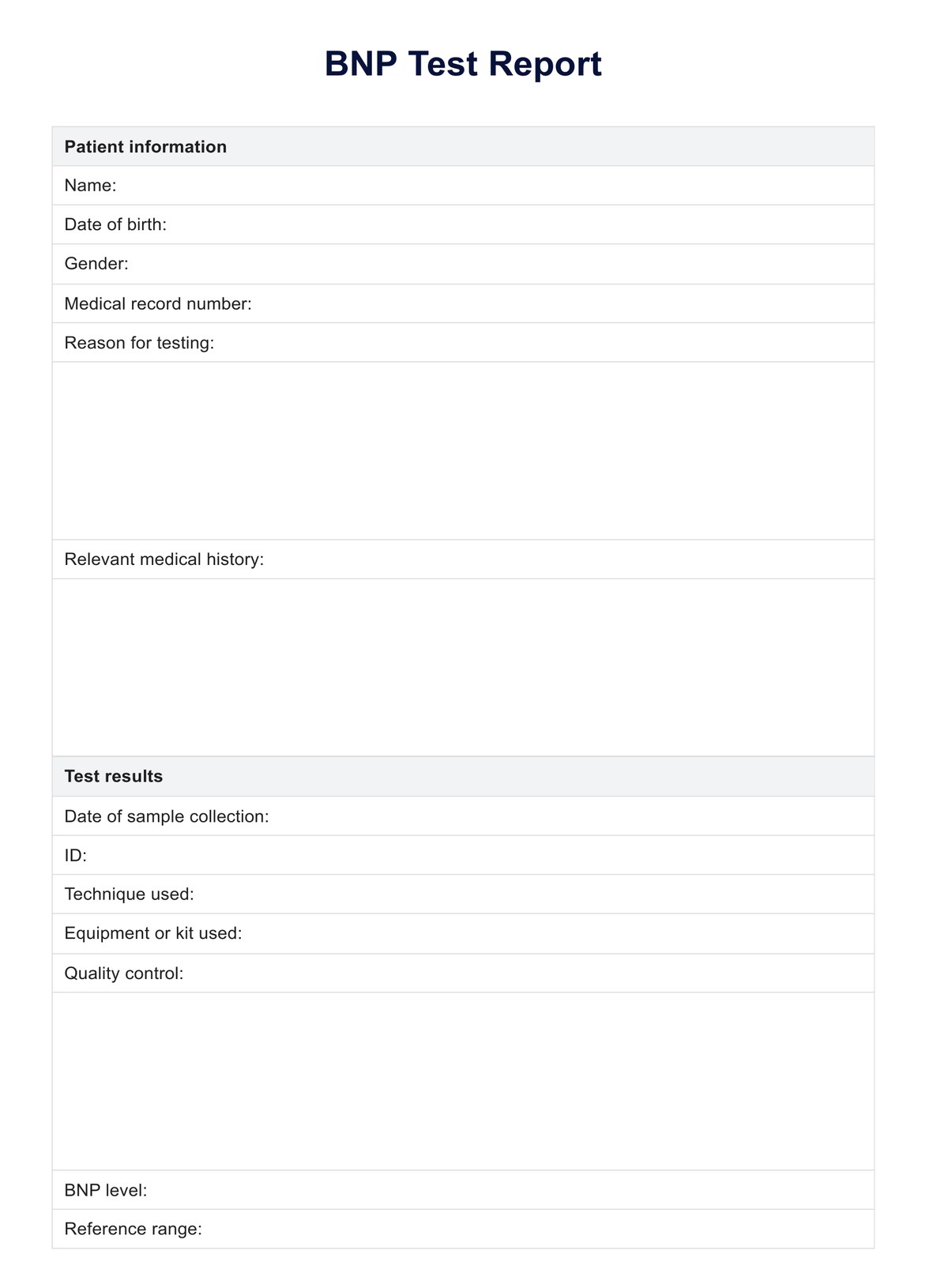A high B-type natriuretic peptide (BNP)level typically indicates the presence of heart failure or other forms of cardiac strain. It is important to note that age, kidney function, and certain medications can also affect BNP levels.

BNP Test Report Template
Get a free BNP Test Report Template. Use this PDF to record BNP Test values and streamline your clinical documentation.
BNP Test Report Template Template
Commonly asked questions
Normal B-type natriuretic peptide (BNP) levels can vary depending on age and other factors, but generally, a BNP level below 100 pg/mL is considered normal. However, it's important to note that this range may differ slightly between laboratories.
Yes, B-type natriuretic peptide (BNP) is considered a biomarker for heart failure and can help healthcare professionals diagnose and manage the condition. However, it should not be used as the sole diagnostic tool; other factors such as symptoms, medical history, and imaging tests should also be considered.
EHR and practice management software
Get started for free
*No credit card required
Free
$0/usd
Unlimited clients
Telehealth
1GB of storage
Client portal text
Automated billing and online payments











